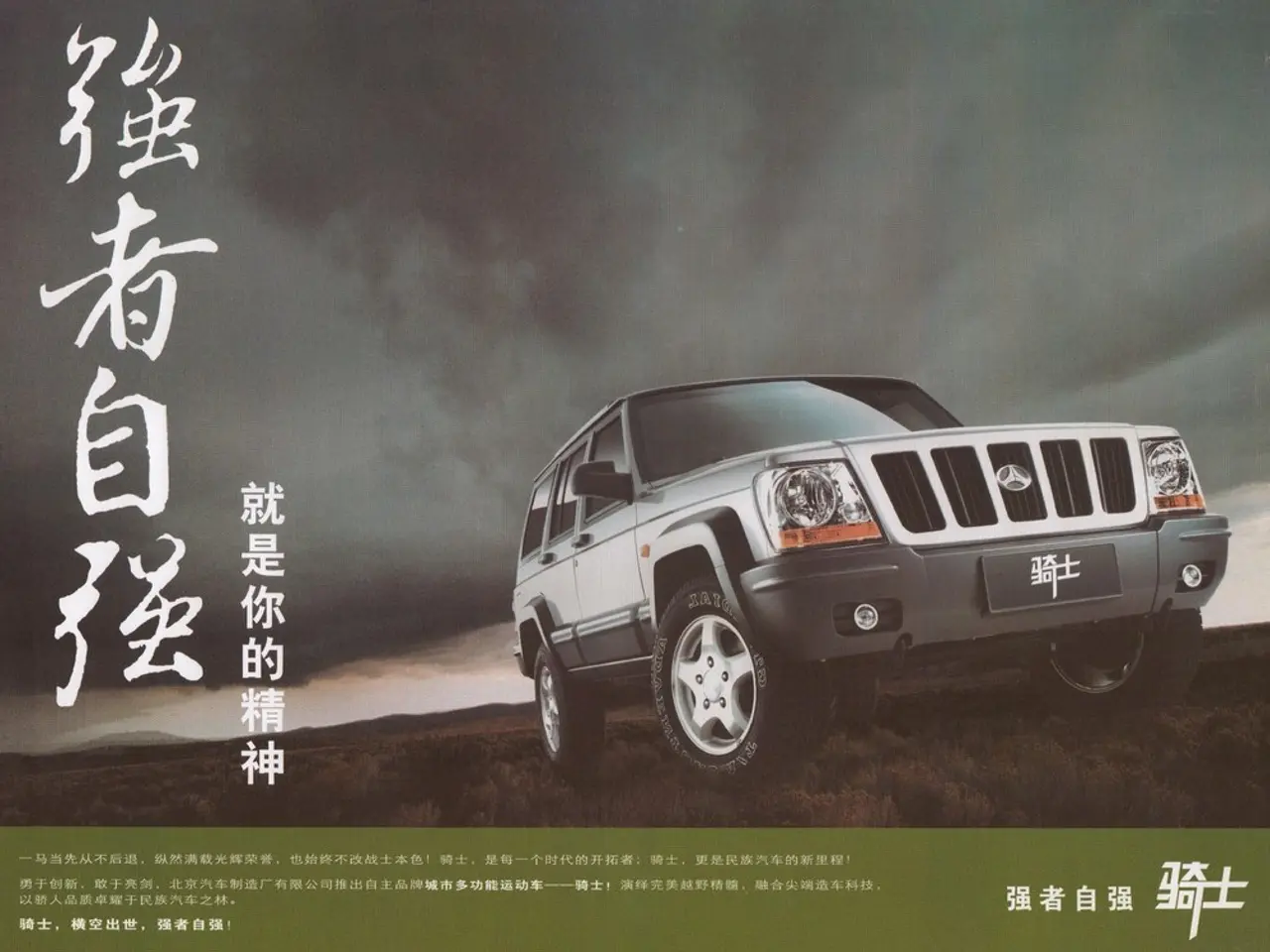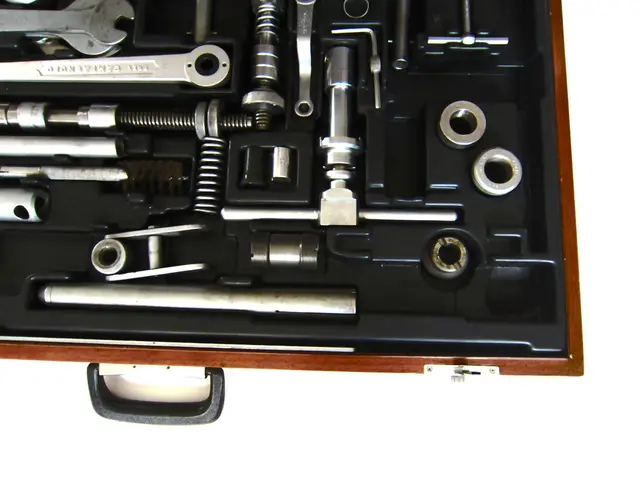Chinese new energy vehicle retail sales increased by 14% year-on-year, reaching 1.003 million units, according to preliminary data from the China Passenger Car Association (CPCA) in July.
China's passenger vehicle market saw a mixed performance in July, with wholesale sales of 2.192 million units, marking a 12 percent year-on-year increase but a 12 percent decrease compared to the same period last month. The daily wholesale sales for the last four days of the month, from the 28th to the 31st, showed a slight improvement, rising by 1 percent year-on-year and 11 percent from the same period last month, to 171,756 units [1].
The growth of China's new energy vehicles (NEVs) is slowing down to moderate levels, with year-on-year increases around 9-14 percent recently. This is a shift from the much faster growth rates seen in prior years. The slowdown can be attributed to several key factors [2][4].
Firstly, the market for NEVs has matured and achieved high penetration rates. In 2025, NEVs have captured over 50% of the passenger vehicle market. As the NEV segment grows larger, maintaining very high growth percentages becomes more challenging, reflecting natural market maturation [1][2][4].
Secondly, the overall passenger vehicle market is growing more modestly, which constrains potential NEV sales growth even as their market share expands [1][2][3].
Thirdly, while technological innovation and new model launches continue to support growth, the novelty effect may be less explosive now as consumers have had time to adapt [2].
Fourthly, domestic automakers control a large majority of the NEV market with increased competitiveness. However, consumer upgrade cycles and preferences may be shifting, leading to steadier, less accelerated sales growth [4].
Lastly, broader economic conditions, export demands, and policy adjustments typically affect vehicle sales momentum, although these factors were not detailed extensively in the provided search results [1].
In July, China's retail sales of passenger vehicles totalled 1.834 million units, with NEV retail sales accounting for 1.003 million units, representing a 54.7 percent penetration rate for the month [1]. This is a decrease from June's retail sales of 1.111 million units and a penetration rate of 54.7 percent [1].
So far this year, China's cumulative retail sales of passenger vehicles are 12.74 million units, and the cumulative retail sales of NEVs are 6.47 million units, with a year-to-date penetration rate of 50.81 percent [1]. The cumulative wholesale sales of passenger NEVs for the year reached 7.63 million units [1].
The weekly trends in sales show a fluctuating pattern. From July 1 to 6, daily wholesale sales of passenger vehicles averaged 38,757 units, up 39 percent year-on-year but flat compared with the same period last month. From July 7 to 13, the average daily wholesale sales increased to 46,085 units, up 31 percent year-on-year but down 12 percent from the same period last month.
The third week of July saw an average of 58,207 daily retail sales, up 17 percent year-on-year but down 20 percent compared with the same period last month. The fourth week showed a daily retail sales average of 66,611 units, up 5 percent year-on-year but down 30 percent from the same period last month.
The fifth week of July saw a decrease in daily retail sales, with an average of 97,491 units, down 1 percent year-on-year and down 4 percent from the same period last month. The sales for the last week of the month, from the 21st to the 27th, showed a further decrease, with daily wholesale sales averaging 77,867 units, up 10 percent year-on-year but down 41 percent from the same period last month.
In terms of individual company performances, Nio registered 3,450 new insurance registrations for the week ending August 3, Tesla registered 11,020, and Xiaomi registered 7,580 [3].
In conclusion, China's passenger NEV retail sales are still growing but at a more moderate pace compared to earlier rapid expansions, mainly due to the market maturing with a high penetration rate, overall vehicle market trends, and evolving consumer and competitive dynamics [1][2][4].
References: [1] China Passenger Vehicle and NEV Sales Data [2] China's New Energy Vehicle Market [3] China EV Insurance Registrations [4] China's Automotive Market








